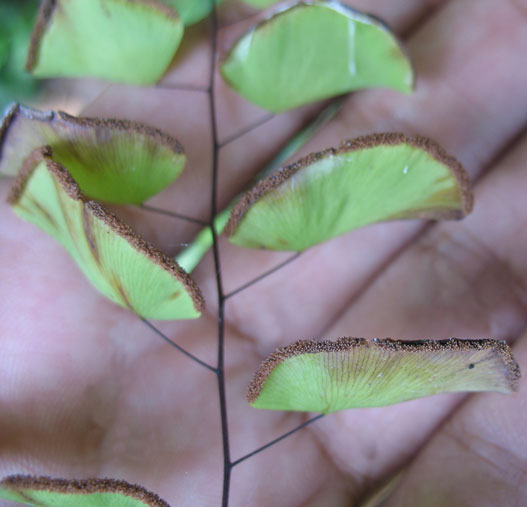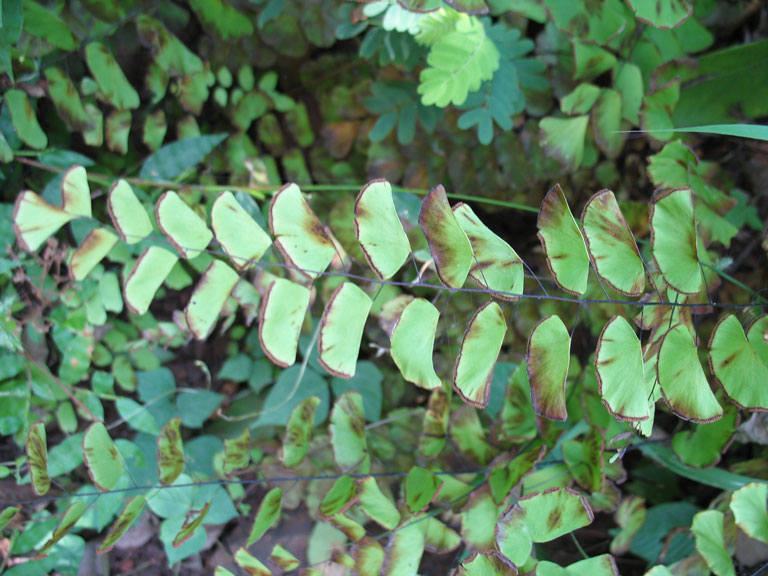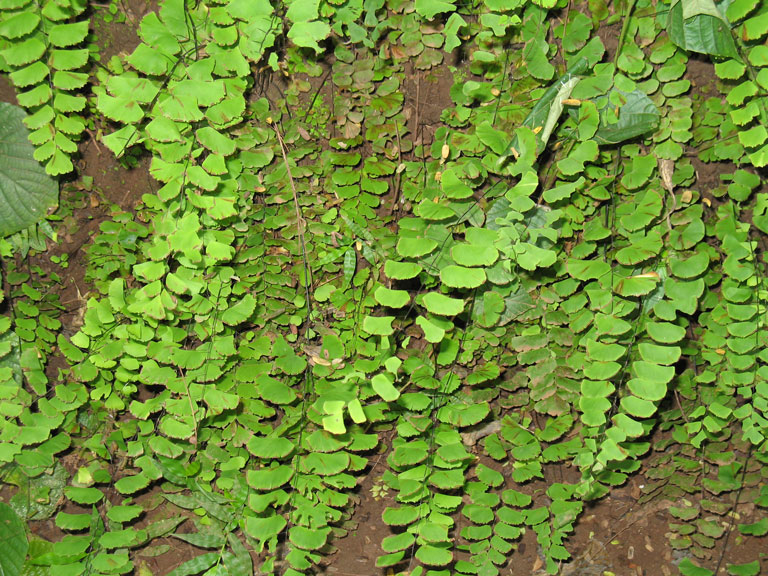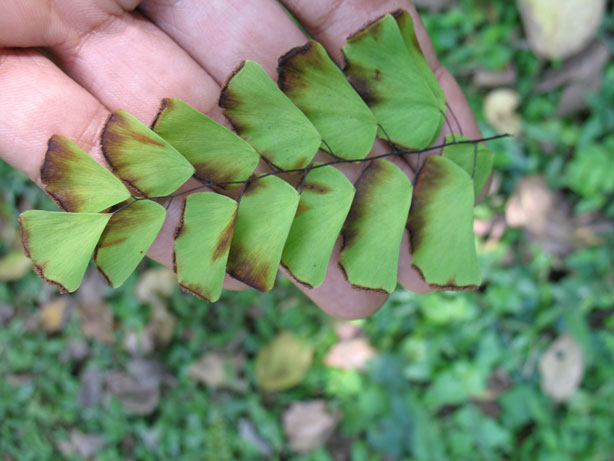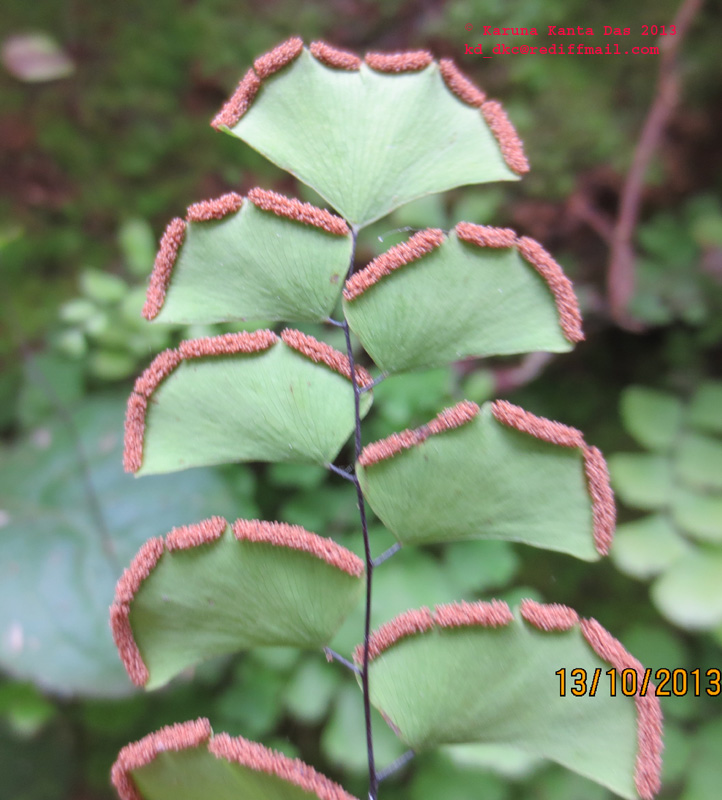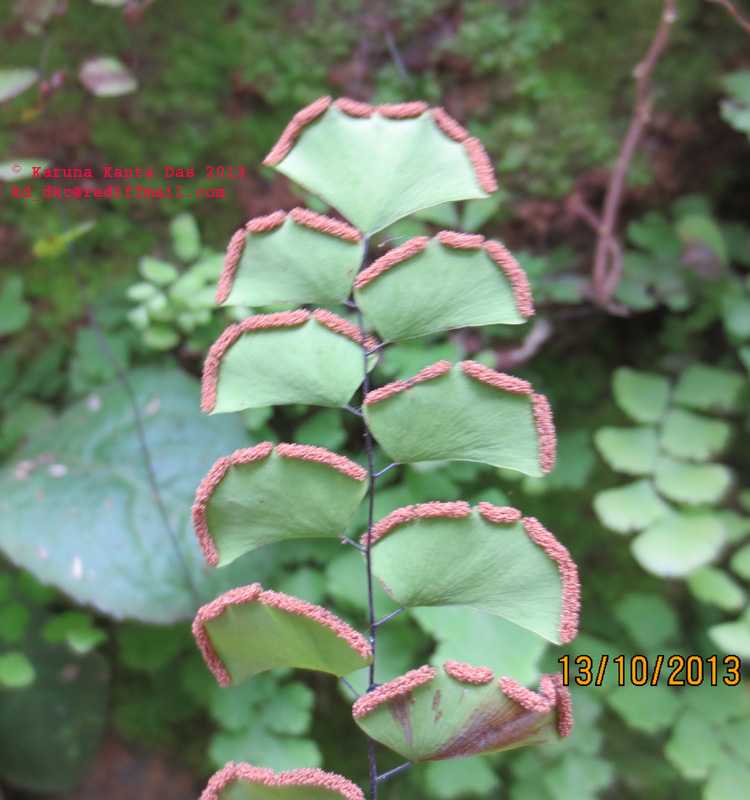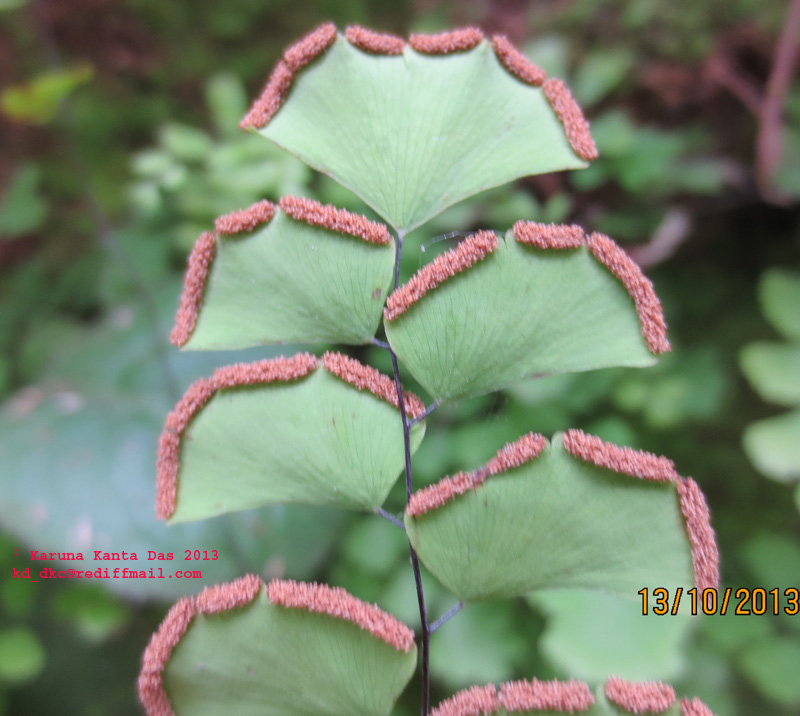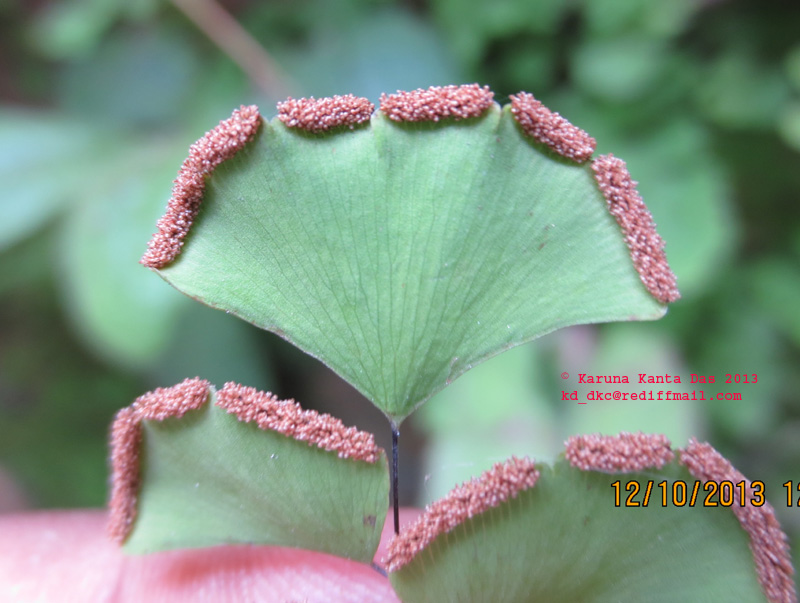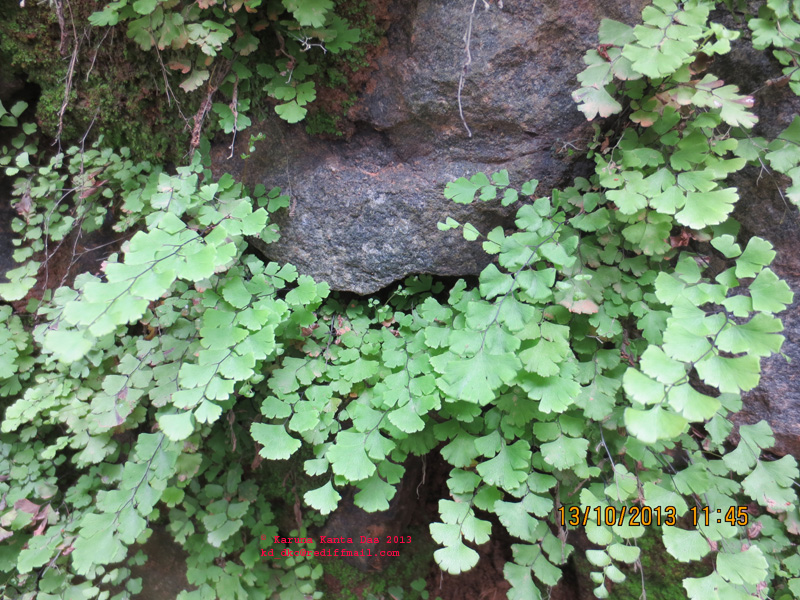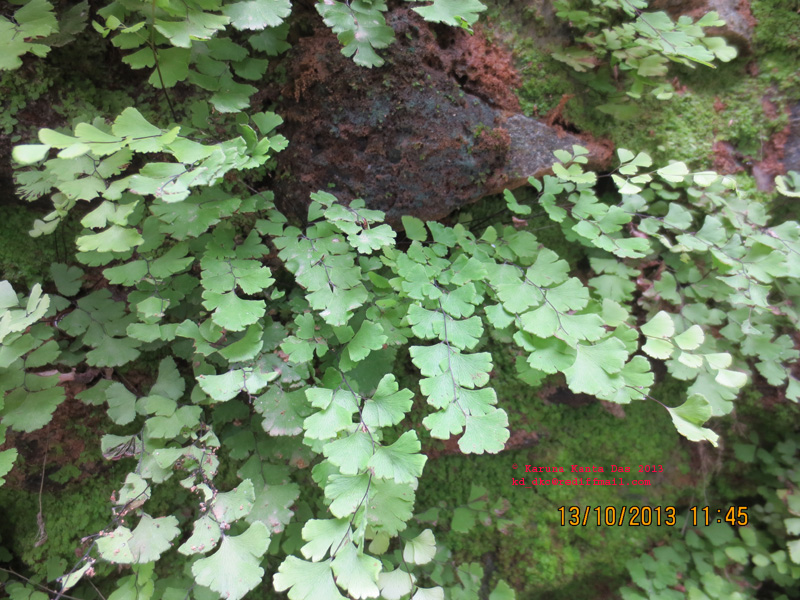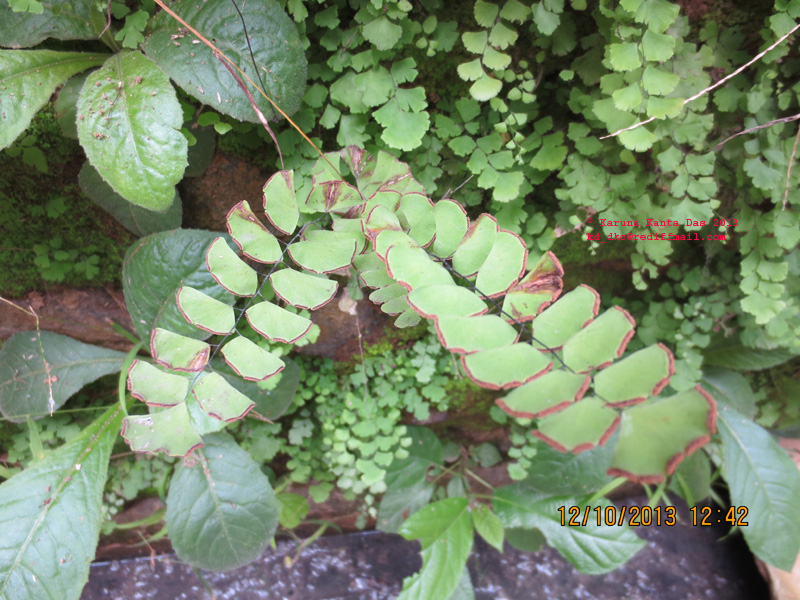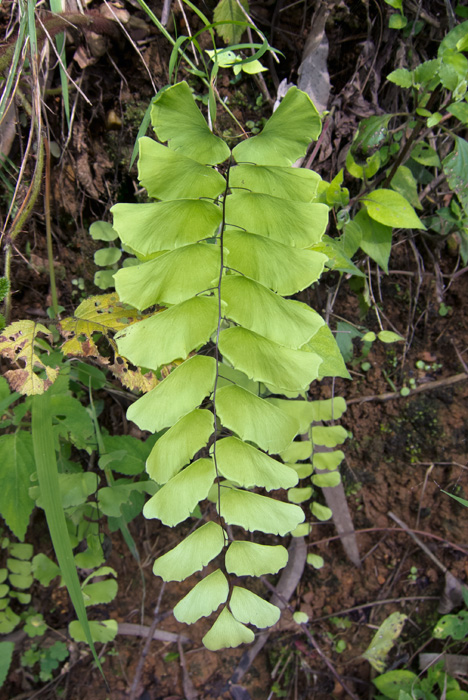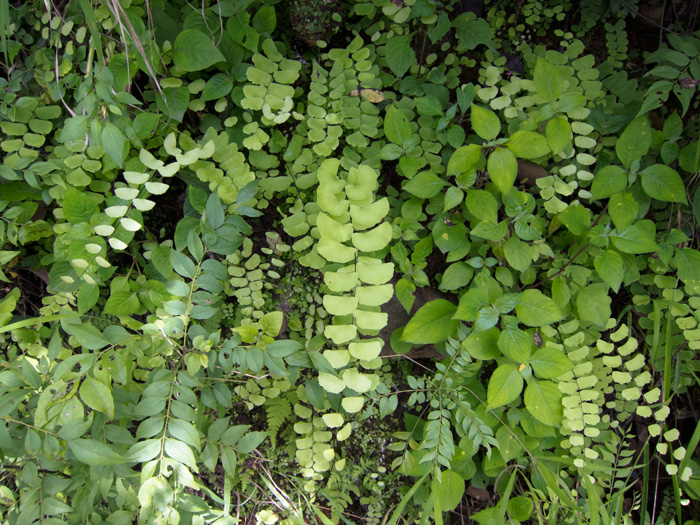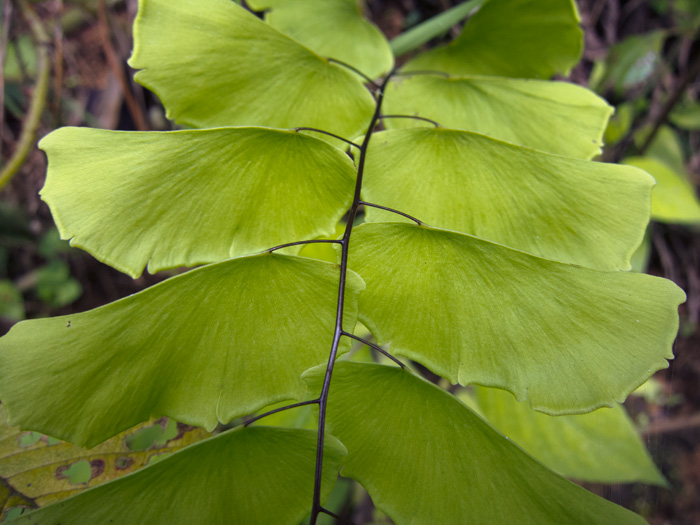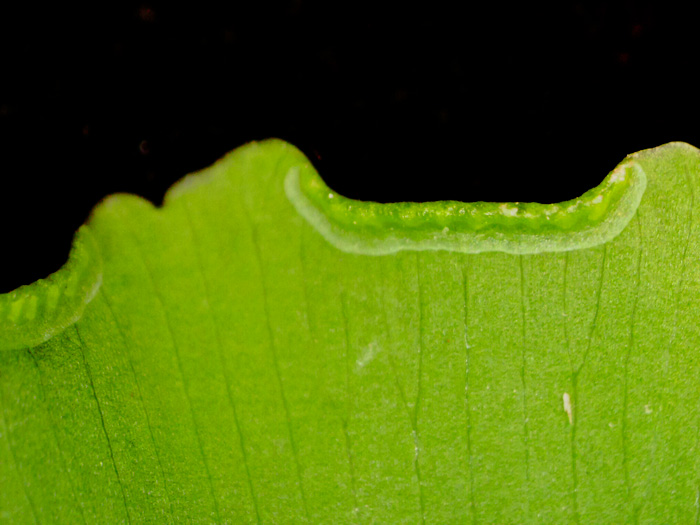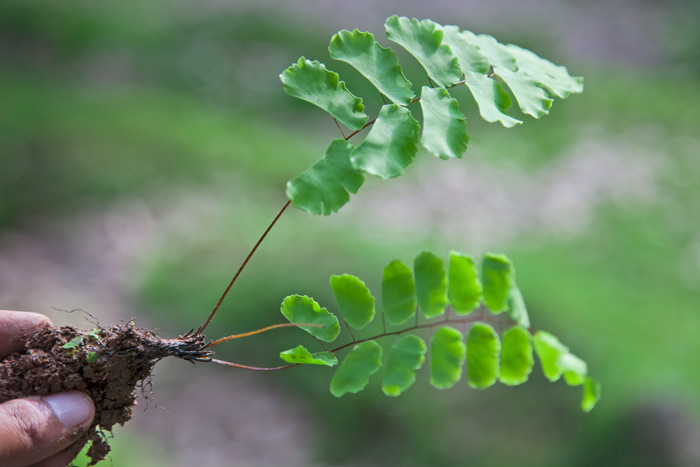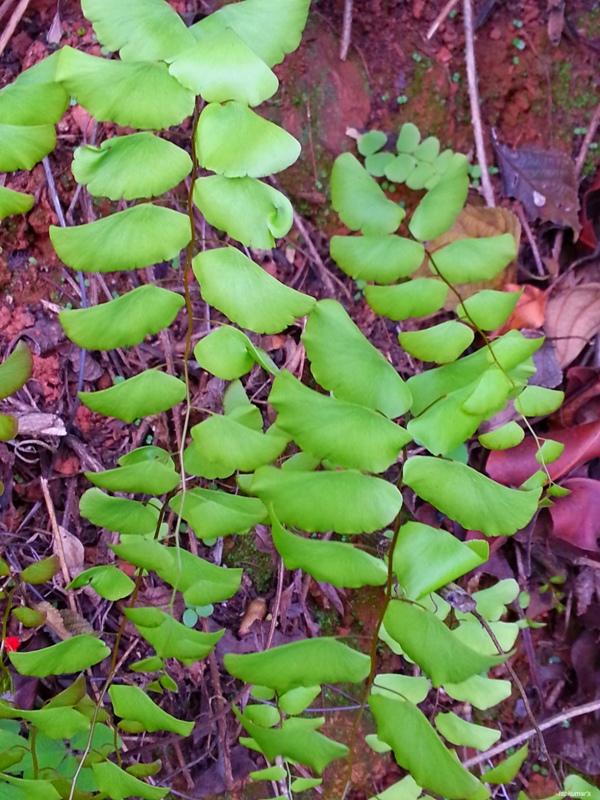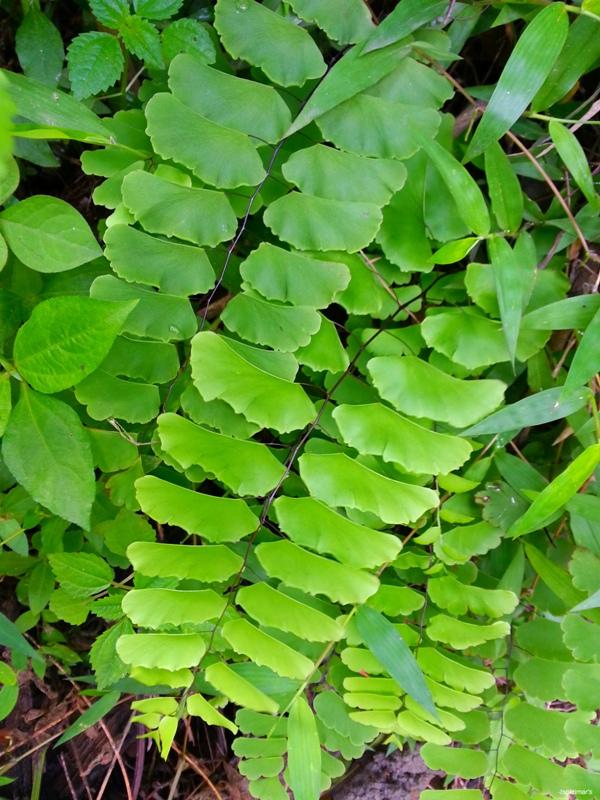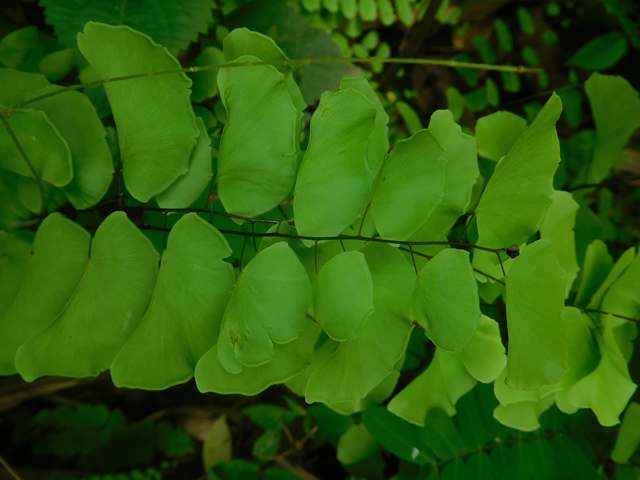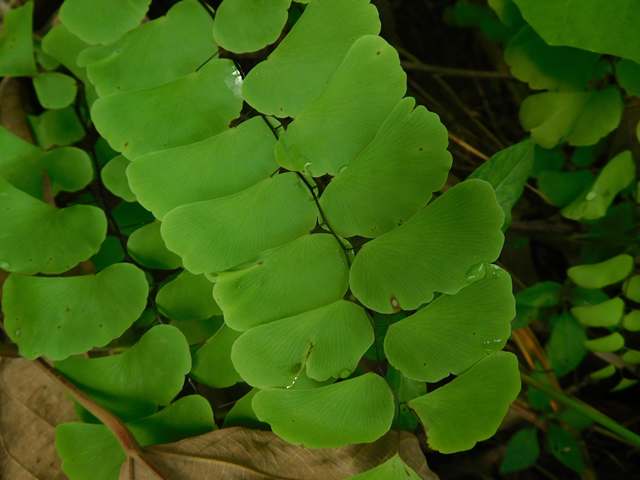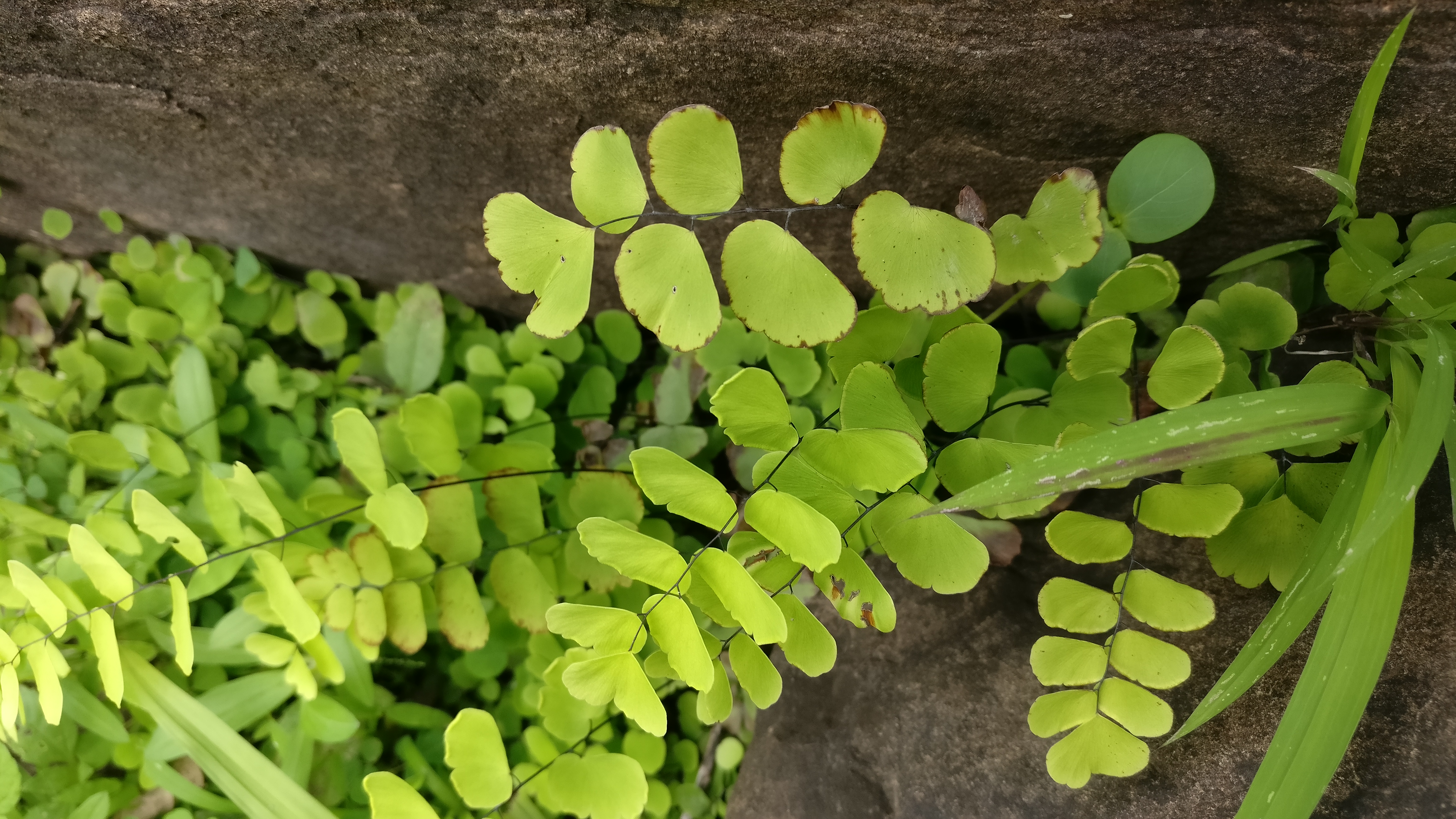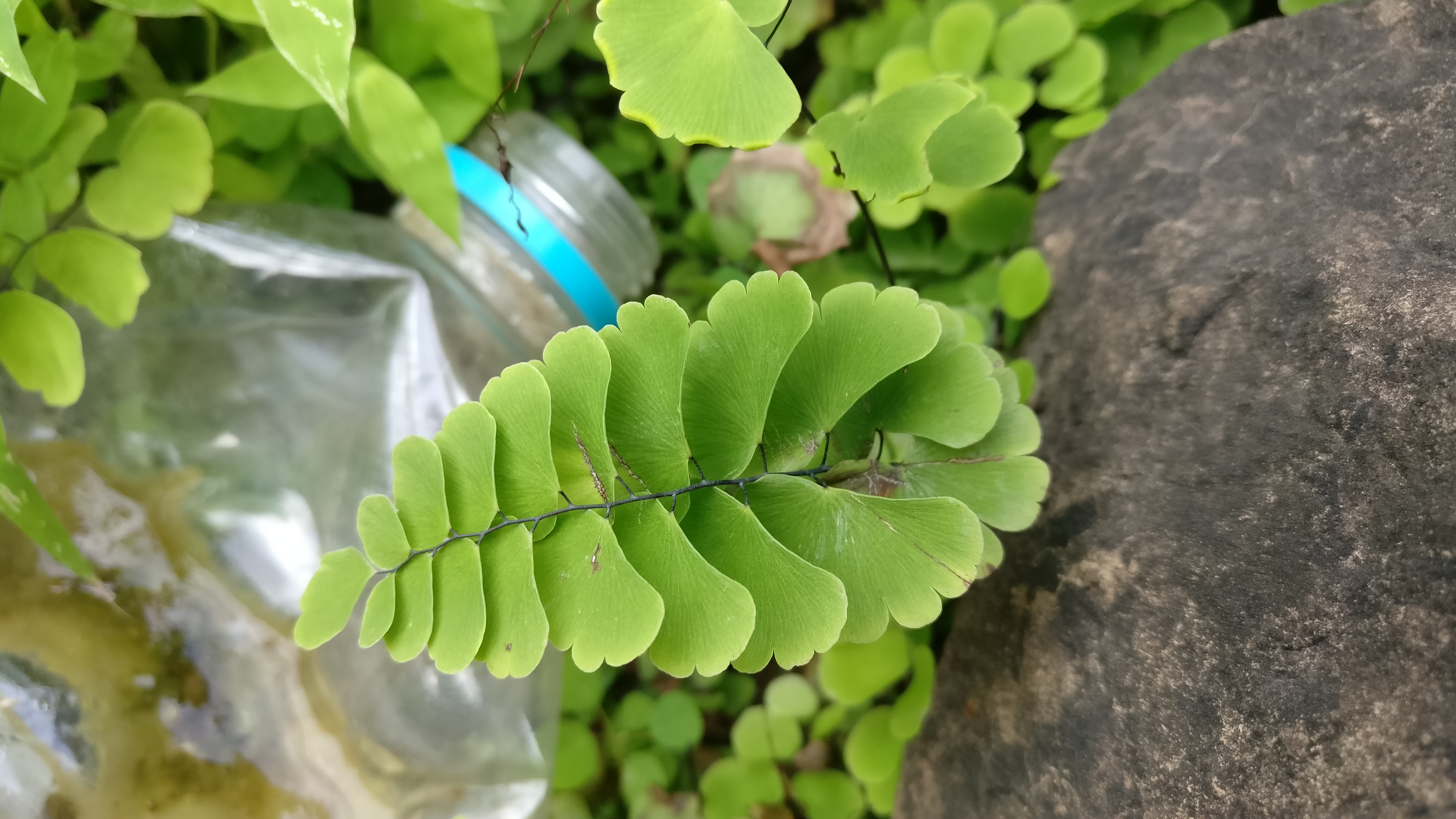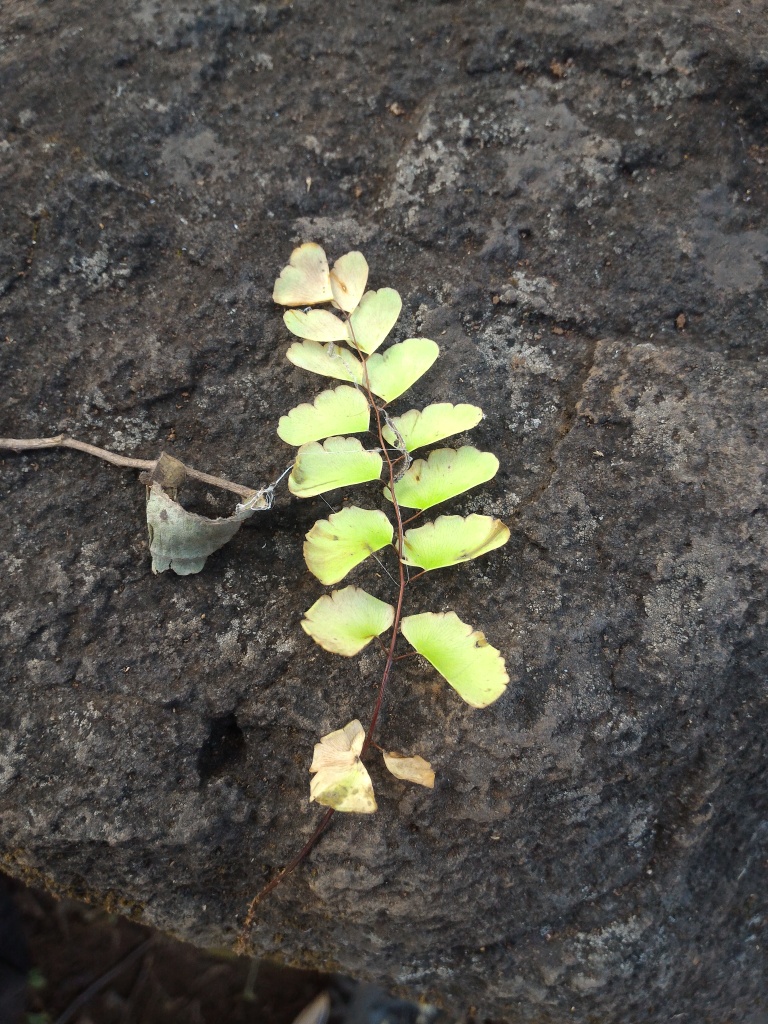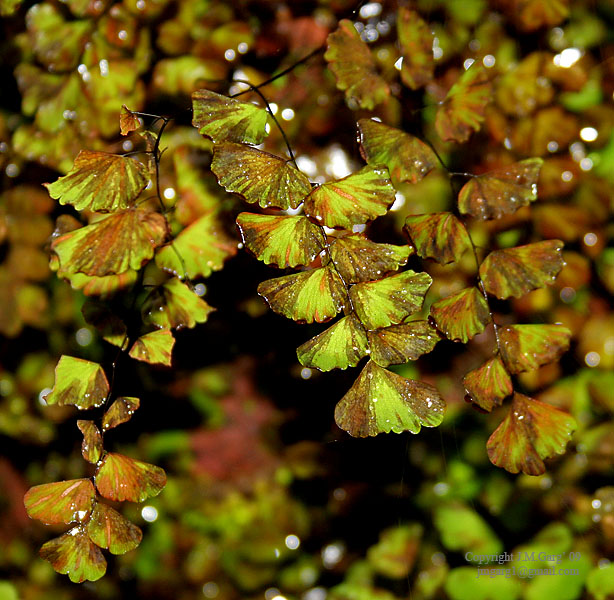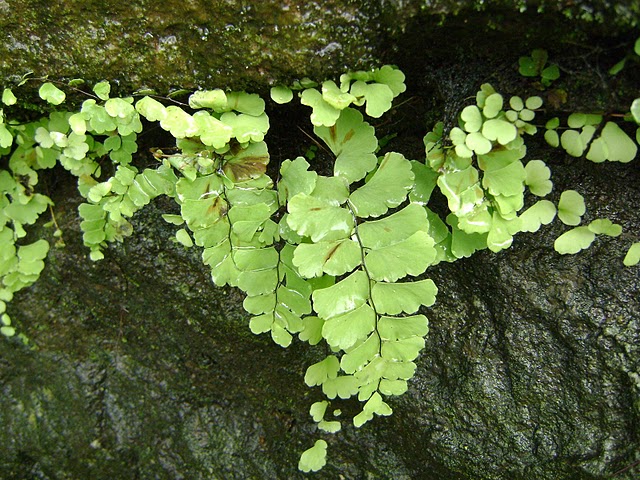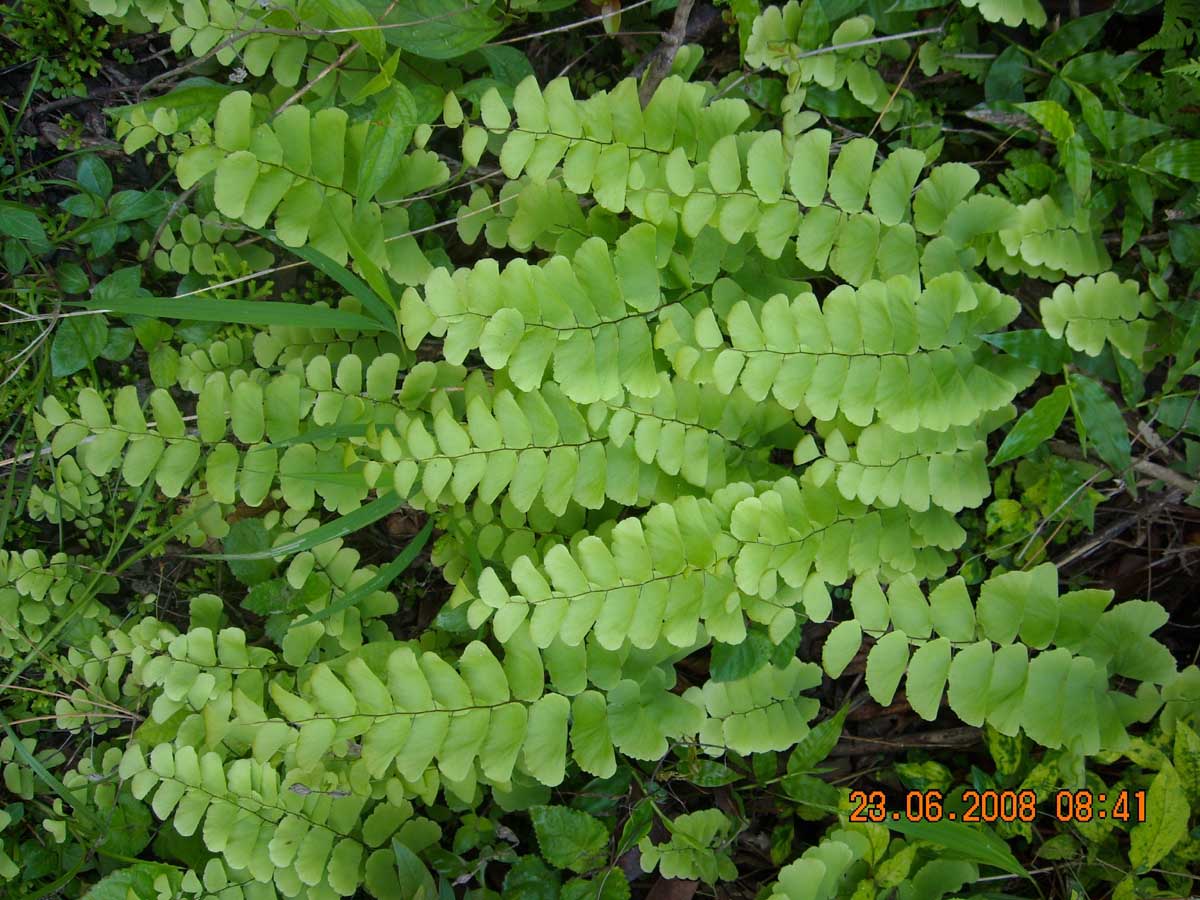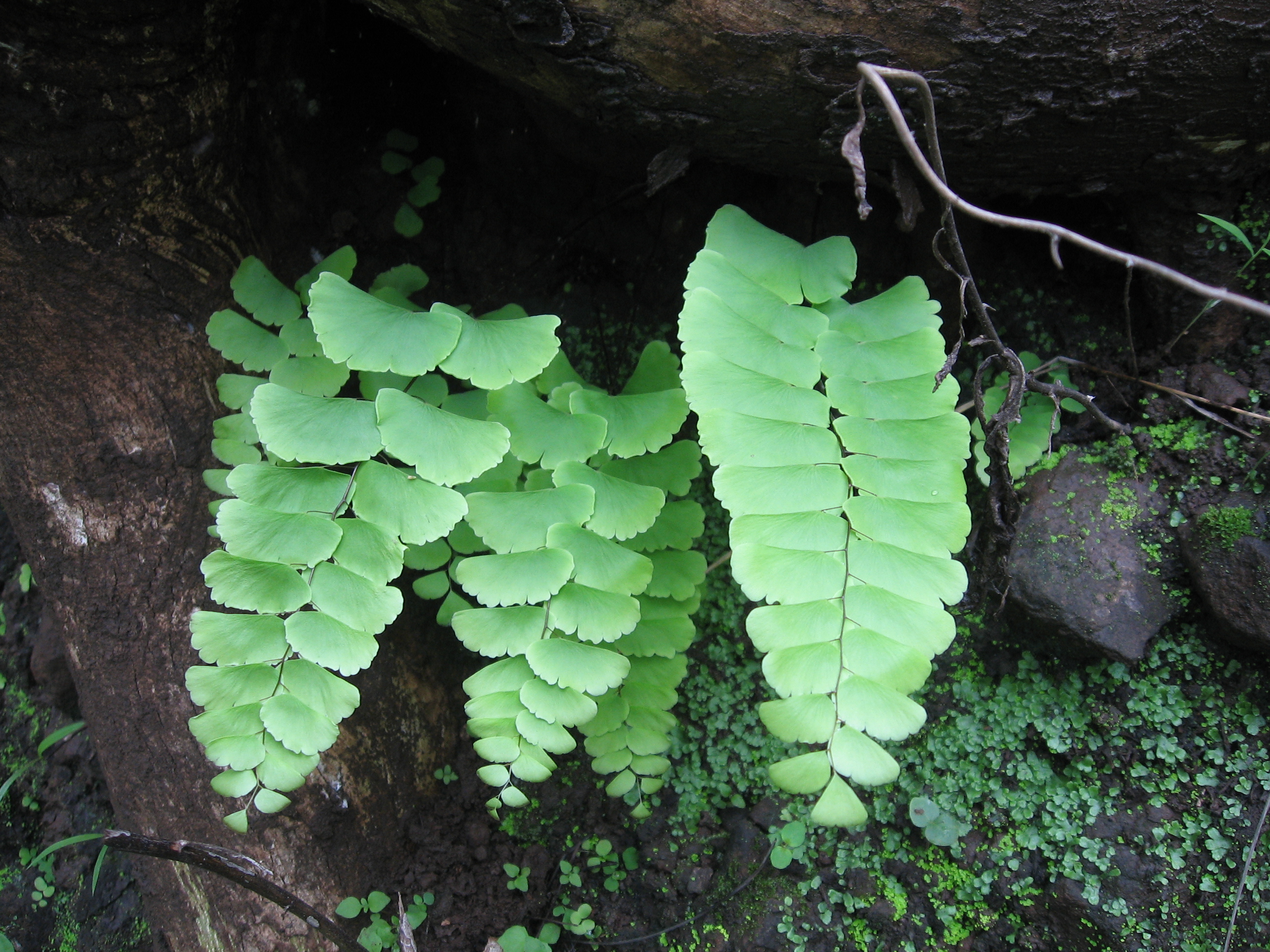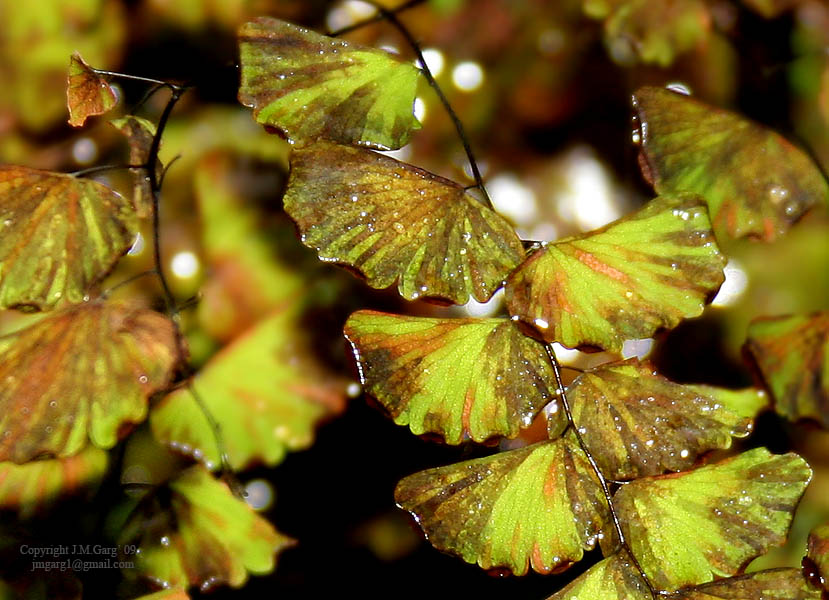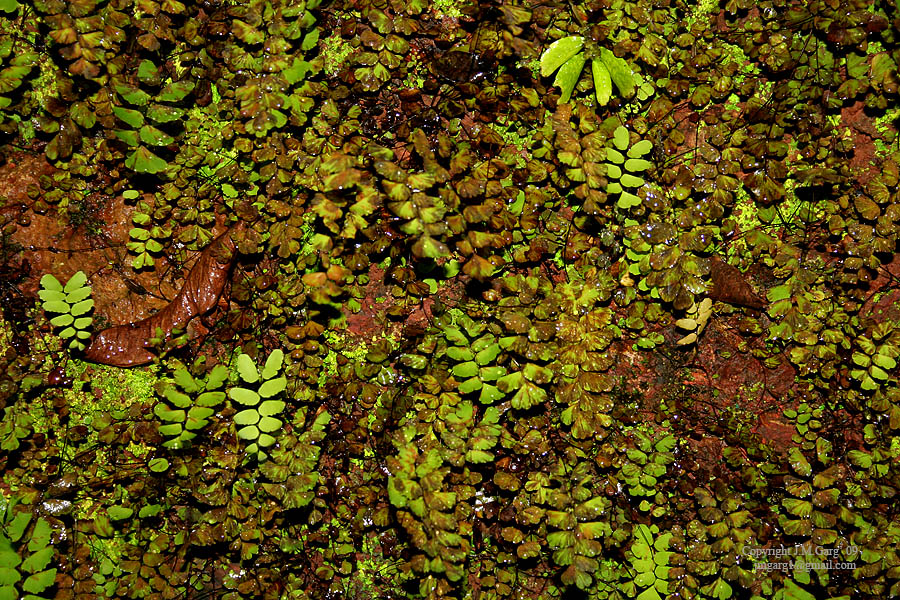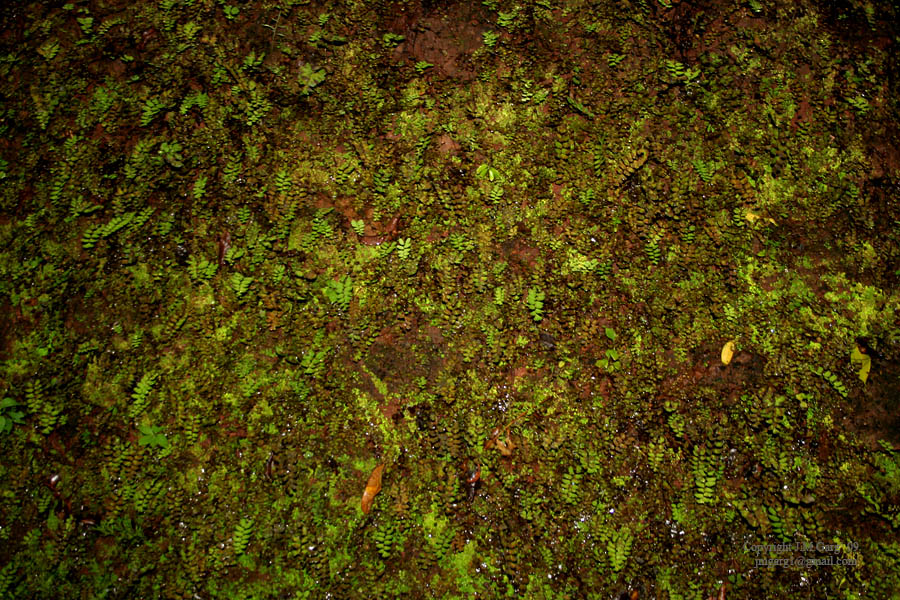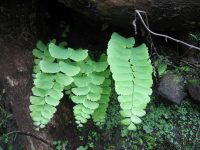|
Adiantum philippense L., Sp. Pl. 2: 1094. 1753 (syn: Cyclosorus arcuatus (Poir.) Alston ; Thelypteris arcuata (Poir.) C.F.Reed ; Aspidium arcuatum (Poir.) Desv. ; Nephrodium arcuatum (Poir.) Desv. ; Polypodium arcuatum Poir. ; Adiantum arcuatum (Poir.) Sw. ; Adiantum lunatum Cav. ; Adiantum lunulatum Burm.f. ; Adiantum lunulatum var. dolabriforme F.M.Bailey ; Adiantum lunulatum var. fissum Christ ; Adiantum lunulatum var. limbatum Christ ; Adiantum lunulatum var. lobatum C.Chr. ; Adiantum lunulatum var. subjunonicum Christ ; Pteris lunulata (Burm.f.) Retz.);
. Tropical & Subtropical Old World: Andaman Is., Angola, Assam, Bangladesh, Benin, Bismarck Archipelago, Burkina, Burundi, Cambodia, Cameroon, Cape Verde, Caroline Is., Central African Repu, Chad, China South-Central, China Southeast, Comoros, East Himalaya, Ethiopia, Fiji, Ghana, Guinea, Guinea-Bissau, Gulf of Guinea Is., Hainan, India, Ivory Coast, Laos, Lesser Sunda Is., Liberia, Madagascar, Malawi, Malaya, Mali, Maluku, Marianas, Mauritius, Mozambique, Myanmar, Nepal, New Guinea, Niger, Nigeria, Northern Provinces, Northern Territory, Oman, Philippines, Queensland, Samoa, Senegal, Sierra Leone, Solomon Is., Sri Lanka, Sudan, Sulawesi, Taiwan, Tanzania, Thailand, Togo, Vanuatu, Vietnam, West Himalaya, Western Australia, Yemen, Zambia, Zaïre, Zimbabwe as per POWO; .
1. A.lunulatum (syn. of Adiantum philippense L.)- entirely glabrous, pinnae pale green rarely dark green, pinnules are fan shape or lunar shape or in crescent form and fold down with sori (linear), stipe glabrous long and dark black
2. A.caudatum – hairy, pinnae green ,hairs pale brown and giving a pale brownish color to whole, pinnules not crescent but almost straight fold down with sori but length is very short compared to A.lunulatum, stipe is hairy brownish due to hair color short as compared to lamina.
If the stipe is glabrous,A.zollingeri but no tail as in A.caudatum .
This is a fern a pteridophyte – Adiantum lunulatum. It is not a climber.
It is the Maidenheir fern Adiantum philippense Yes, correct – this is Adiantum philippense, like the last one (synonym A. lunulatum) – see the recent paper by S.C. Verma and Fraser-Jenkins on this species. (Indian Fern Society Silver Jubilee Volume). Adiantum philippense L. from Kamrup district (Metro), Assam : Attachments (8). 5 posts by 4 authors. Attached images are Adiantum philippense L.
Date :02.10. 2013
Location: Kamrup district(Metro)
Family : Adiantaceae
Genus & species :Adiantum philippense L.
Habitat: Grows wild on stone wall
Habit : Herb What a lovely fern. That’s correct, A. philippense, looks most probably subsp. philippense, though we need much more cytological work throughout India. Very common and widespread species throughout. I found this beautiful fern on my drive down to the lower town. It was commonly growing nearby the other Adiantum, A. incisum. I collected this at about 800m altitude but saw several specimens at above 1200m too. After taking a photo of the rhizome I replanted it near home at 1800m altitude where it would perhaps perish but I am curious to know.
Please correct me if I am misidentifying it.
Adiantum lunulatum
Near Gaggal, Dharamshala, HP
800m
18 July, 2015. the transplanted rhizome must get water that does not get logged in. constant trickling is the trick and some rocky pieces they seem to like the stone’s minerals and some leafy mold or forest floor gunk.
also these fronds make a nice botanical picture in its herbarium avatar, did you try it? try some of the longest fronds you can find minus the rhizome. Thank you … I will give it a try.
Kindly identify this Adiantum sp (Adiantaceae) Habit: Herb Habitat: Wild, terrestrial, montane forest fringe. Sighting: Chikmagalur, Karnataka, about 1400 msl Date: 15-05-2015 This is the most commonly found Adiantum species – Adiantum philippense subsp. philippense L. found growing throughout the Western Ghats and other places also. This looks like Adiantum lunulatum
Adiantum lunulatum is synonym for A. philippense and the latter is used now. This was clarified by Mr Christopher Jenkins who has revised and finalized taxonomy of Asian pteridophytes Thanks, … GRIN seems to be correct in this respect, while The Plant List ver. 1.1 is not as it treats them in reverse. … is indeed correct – don’t forget Adiantum lunulatum is an illegitimate name and should be called A. philippense. Kas Week : Fern : Adaintum Sp.Id pl.:
This Fern : Adaintum sp. I clicked at Kaas in Sept.2011 and would appreciate Id of the same Looks like Adiantum philippense (A lunulatum). But this has an almost entire margin. But then this species is quite variable. Hello, that’s Adiantum philippense and has the expected morphology for subsp. philippense. PM 30-07-2018. Id confirmation Adiantum sp…- Adiantum philippense : 2 images.
presenting few images of Adiantum sp. Pic 1, 2. I think it is Adiantum lunulatum? photographed at Mandi, H.P., 23-07-2018.
The first two are Adiantum philippense subsp. philippense. I didn’t know people were still sometimes using its synonym, A. lunulatum, but that is very much outdated. The correct name is A. philippense. See S.C. Verma & Fraser-Jenkins’ paper on the nomenclature and the cyto-subspecies. At Girnar taleti, Junagadh, Gujarat
This is the well known and widespread species Adiantum philippense L (syn.: A. lunulatum Burm.f.), widespread throughout most of India. The specimens are either sterile or a bit too poor to be confident as to which subspecies they are, though probably subsp. philippense. One would need a chromosome-count though to find out for sure. 310519AB3 ID : 6 posts by 4 authors. Attachments (1) – 393 kb.
Identification, please. Very abundant in Melghat. A pteridophyte? Date/Time- November 8, 2017; 09:44 AM Location- Place, Altitude, GPS- Eastern Melghat, Habitat- Garden/ Urban/ Wild/ Type- Wild Plant Habit- Tree/ Shrub/ Climber/ Herb- Herb Height/Length- Upto 1’ Height Apart from identification, what is the native/invasive status of this species in India? Yes, pteridophyte.. Adiantum sp. Thank you for the prompt reply, …. Any idea about the species and the native/invasive status? Adiantum sp. Adiantum lunulatum Tamhini ghat near Pune, MH :: Adiantum philippense :: ARK2019-71 : 7 posts by 4 authors. Attachments (3)
This fern was seen by the roadside near Tamhini ghat near Pune, MH in Aug 2019.
I guess this is Adiantum philippense.
I guess ID is correct !
spores? Adiantum philippense, probably subsp. philippense
Fern for ID – efloraofindia | Google Groups .
That’s an Adiantum sp. or the Maiden Hair Fern. It is Adiantum lunulatum. by now we have come across A. caudatum and A. lunulatum
Any simple visual difference among these two ? Any one having Bedome’s Handbook of Indian Ferns?, or Ferns of South India?. I will check when I reach back Delhi What I can gather from information on net is that sori bearing part of leaflet is forming a curve (semilunar) almost reaching the base on inner margin. In A. caudatum basal two sides almost triangular, and fertile upper margin straight, more or less horizontal.
In that sense our plant is closer to A. lunulatum. Here I am trying to picture out the difference between A.lunulatum and A.caudatum
This is not a technical description.
1. A.lunulatum– entirely glabrous, pinnae pale green rarely dark green, pinnules are fan shape or lunar shape or in crescent form and fold down with sori (linear),stipe glabrous long and dark black
2. A.caudatum – hairy, pinnae green ,hairs pale brown and giving a pale brownish color to whole, pinnules not crescent but almost straight fold down with sori but length is very short compared to A.lunulatum, stipe is hairy brownish due to hair color short as compared to lamina.
If the stipe is glabrous, A.zollingeri but no tail as in A.caudatum . Pteridaceae: Adiantum philippense subsp. philippense: 1 image.
synonym: Adiantum lunulatum Burm.fil.
location/date: Semadoh, Melghat Wildlife Sanctuary, Amravati Distr., Maharashtra, November 1994 . References:
POWO |
Disclaimer
1. For any mistake in identification or for becoming efloraofindia e-group member (for contributing towards building of efloraofindia or otherwise), pl. mail to indiantreepix@googlegroups.com or itpmods@googlegroups.com
2. For better viewing of species’ pages, colour scheme & formatting is being followed as: Description of the species, Details of other flora species on the same page, Uses/ harms, Distribution, Abundance/ Location/ Flowering time & date, Habit & habitat, Etymology & pronunciation, Other interesting information, stories etc., Others, Botanical names, Common names, Main point of discussion below, Discussion about Botanical names.
Navigation
- Award for eFloraofIndia
- Colour scheme & formatting
- Copyrights, Permissions, Citations
- eFloraofIndia appreciated
- Names of Plants in India site
- Flowersofindia site
- Posting Guidelines
- For members’ information
- Logo, Tagline, Acronym
- Volunteers required
- ‘Pitamah’ of eFloraofIndia
- ‘अजेय’ ‘Ajey’ of eFloraofIndia
- ‘Saarthi’ ‘सारथि’ of eFloraofIndia
- ‘Jewel’ of eFloraofIndia
- ‘Grassman’ of eFloraofIndia

